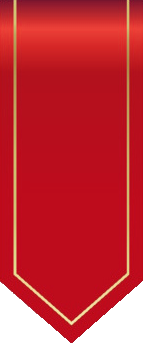
Chapter One
Chapter One covers Rossano’s very early years. We explore those early years and learn about his parents and life in Italy back in 1916.
My first stop when researching Rossano’s life was Bologna, the city of his birth. I had a wonderful trip there, the highlight being my visit to the actor’s retirement home just along from FC Bologna’s stadium. Rossano made a couple of significant donations to the home during his life. The details of this trip can be found further down and in the section covering chapter twenty five.
Here's Rossano aged around two or three years old.
Historic view of Bologna. Taken high up above the city. Bologna is a beautifully, historic city and is famous for its food. The restaurants, alone, are worth the visit.
To get this view, take one of the open top bus tours of the city. It's a great way to get your bearings and takes you up a couple of hills to get vistas like this.
Rossano leads me to the Basilica of San Petronio in the Piazza Maggiore in the centre of Bologna. This is the main square in the centre of the city.
The Cinema Ritrovato Festival is held in the city in July. All around the city, restored foreign and English speaking films are shown. In this square, you can view a film in the open-air for free.
Rossano’s restored film, We the Living, was launched at this festival in 2022. This seemed a fitting start to the film's re-screenings, in the home of Rossano's birth.
Statue of Neptune.
In the book, Rossano refers to this statue in a fun way as he guides me around his home town. The statue can be found just around the corner from the Piazza Maggiore.
Typical deli - Bologna is known as La Grassa - The Fat. Delis like this are everywhere. I actually wanted to rent an apartment for a month and cook for myself because the produce looked amazing. Rossano and his wife, Lydia, loved cooking and the fresh produce in Tuscany would have fed that passion (excuse the pun.)
I found a lot of wonderful delis just off the Piazza Maggiore near to where Rossano's father had his shoe shops in via Calzolerie.
The towers. Rossano speaks about the towers in the book. Well, here they are. Again, these are just around the corner from the Piazza Maggiore. They're situated on the junction of the via Rizzoli and Strada Maggiore. There were, apparently, hundreds of these towers all around the city. If you get up on one of the hills, you can still see ruins of some.
Via Calzolarie - This is where Rossano’s father had his shoe/leather shops in Bologna. This is a tiny alleyway close to the towers and the Piazza Maggiore. Not much there now but you will be among some lovely delis and restaurants.
Also attached is a photo of Rossano's father, Adelmo, that didn't make it to the book. Here he is as a young man during the Great War.
Then and now. Bologna's pool was built during Mussolini's rule. Rossano used this pool quite a bit in his youth. It’s a shame the Art Deco design is now somewhat overshadowed by the modern roof.
Apologies that, for reasons I cannot understand, the photos won't enlarge. The pool is located next to the FC Bologna stadium just outside the city walls.
Actor’s retirement home, Casa di Riposo, puppet theatre and the new theatre owned by the home. Due to Covid I wasn't permitted inside the retirement home but I did glean quite a bit of information.
Rossano speaks of two significant donations to this home. Once, immediately after the war, he had the windows replaced; unfortunately, the home had no record of this. It was suggested to me that the records may not have gone back that far or had been destroyed. We’ll have to make our own minds up about that. Knowing how much he did for charity, however, it wouldn’t surprise me if this were true. The other donation, made on Rossano’s behalf, was from the RCA record company. In 1960, they sent through stereo equipment for each room plus a stack of albums for the residents of the home. Nice.
There are very few family photos. Unlike the last few decades, people back in the 20s and 30s didn't take many photos. Those I do have are in the book. But, this one didn't make the book and it seems a shame not to show it because I think it's a beautiful image.
With thanks to Ralph Edward productions for use of this still from This is Your Life. Rossano, like many Italian sons, loved his parents very much, especially his mother. His father died in 1942 but his mother was quite elderly when she passed. She travelled from Rome to see her son on this show. The delight on his face when she walked out was obvious and he smothered her in hugs and kisses.
Both Rossano and Lydia were big fans of cooking, especially traditional Bolognese/Tuscan dishes. I'm sure they spent a lot of time searching for ingredients. The shops in this area of Bologna have probably changed considerably but there are still countless delis and grocers packed into the side streets and alleys.